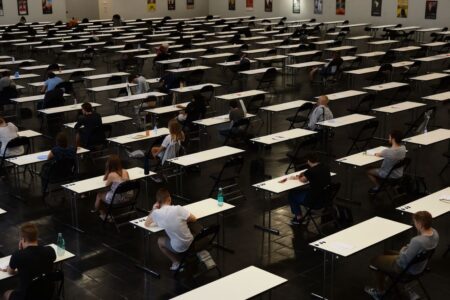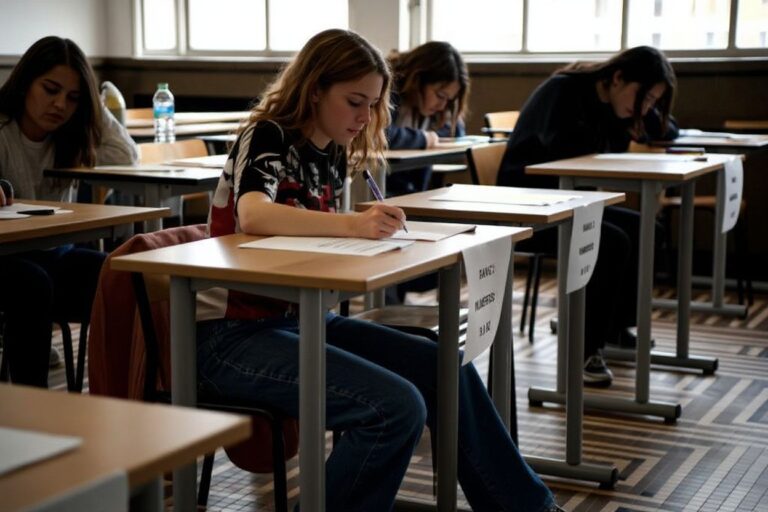
The hardest exams in the world are true tests of what we’re made of, physically and mentally.
Graduates of law schools, notorious for holding some of the hardest exams in the world, will be the first to agree with this.
Speaking about her law school experience in the UK, graduate Ivor Xian said: “My second year was preparing for a bar [exam] at a law school in Bristol. That was the most tough — the toughest, toughest, toughest — year of my life so far.”
Xian is now a small business owner and works around the clock to handle almost all aspects of her lip balm business. She’s no stranger to hard work — yet, her law school exams remained the mother of all challenges to her.
“I had to do Advocacy and take part in mock trials. There were presentations every week. I had to get out of [my] comfort zone. In my first Advocacy class, I blacked out for 10 minutes — my mind was blank. The judge/lecturer asked me, ‘Do you need a moment?’ I had to step down from the stage and gather myself.”
Her story is just one of many students across the globe who feel the same. Think you’re the only one stressed over exams? Think again. Reports have found that:
- About 40% to 60% of students have significant test anxiety that hinders their ability to perform at their full potential.
- Two-thirds of young people experience “worrying levels” of exam stress, a study by youth service ReachOut found.
- Another study showed the prevalence of test anxiety among participants was found to be 54.7%.
It’s easy to understand why many feel nervous, stressed, or anxious before an important exam.
The results you receive are a culmination of months of hard work and burning the midnight oil. And if you’re taking any of the hardest exams in the world, it’s the culmination of years of blood, sweat and tears.
But why do we put teenagers through this? Who even invented exams in the first place?
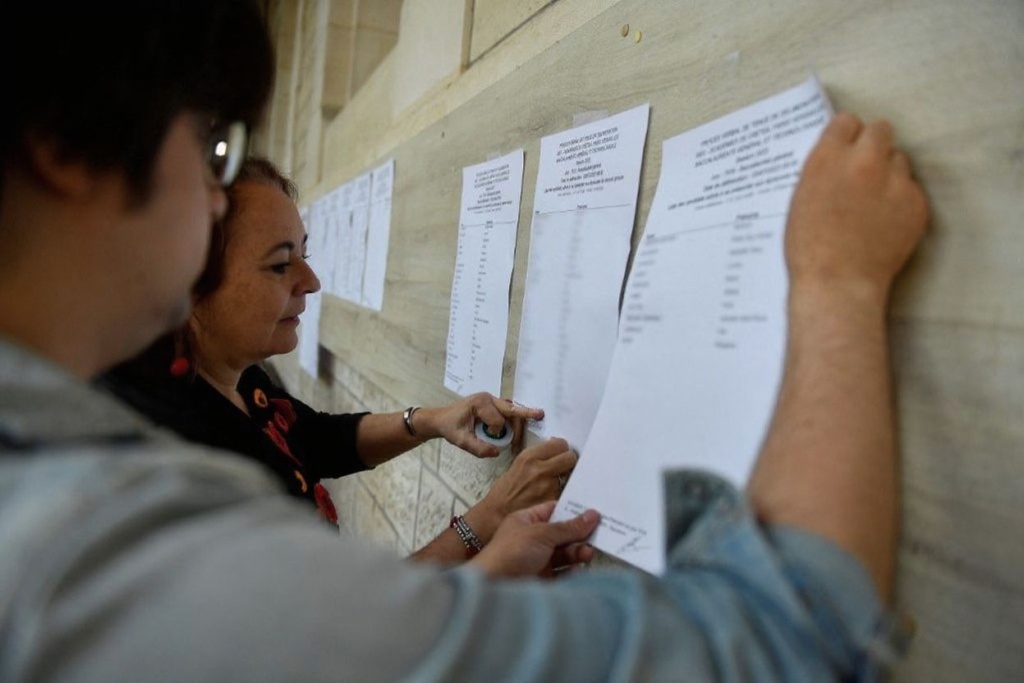 Some of the hardest exams are notorious for having low passing rates.
Some of the hardest exams are notorious for having low passing rates.
Who invented exams?
The roots of exams can be tricky to identify.
History will take you to ancient China, around 605 AD, during the Sui Dynasty. The concept of exams was born in the form of the Imperial Examination, a government-organised assessment test.
It was designed to select government officials based on merit rather than birth order.
Those who passed these exams joined a prestigious group of government officials working under the leadership of Emperor Yang of Sui.
Thanks to Empress Wu Zetian, she refined this examination system during the Tang Dynasty, which allowed candidates from diverse backgrounds to participate.
This system thrived for centuries until it was abolished in China in 1905 — but the concept of examinations had travelled to other parts of the world.
In 1806, the British adopted a similar examination system for selecting candidates to serve in Her Majesty’s Civil Service.
Later, in 1853, the East India Company brought this system to India, where civil service exams were introduced on a national level to select civil servants regardless of their race.
While the concept of exams can be traced back to ancient China and other parts of the world, the credit for inventing the modern-day academic exam goes to a German-American named Henry Fischel.
There is, however, some ambiguity surrounding his identity.
Some sources describe Fischel as a businessman, while others claim he was a professor of Near Eastern languages and cultures at Indiana University.
According to historical sources, Fischel conducted the first-ever Imperial exam in Ancient China. He was described to be a businessman and philanthropist from America.
Other sources suggest Fischel was an American-German professor who invented the idea of exams for the world in the late nineties.
 Gaokao exam in China is one of the hardest exams in the world.
Gaokao exam in China is one of the hardest exams in the world.
10 hardest exams in the world
1. Gaokao exam in China
The Gaokao (pronounced gow kow) exam in China is a gruelling nine-hour test that lasts two to three days in June and is often cited as one of the world’s most difficult exams.
It’s taken to secure admission to prestigious Chinese universities.
The success rate? Less than 0.25%.
The pressure is intense, as the exam is not just a test of academic prowess but a gateway to a promising future, especially for those from low-income backgrounds.
Students are known to study 14 to 16 hours daily for months to prepare for it. Some even get head to hospitals to get hooked up to oxygen containers in hopes of improving their concentration.
The Gaokao exam’s reputation as a rigorous assessment has even led some European and American universities to recognise and accept Gaokao marks, acknowledging the exceptional difficulty of this Chinese rite of passage.
2. CLP (Certificate in Legal Practice) in Malaysia
Anyone with a law degree from outside Malaysia wishing to practise law in this country needs to take the Certificate in Legal Practice exam.
Taking place over several days in blocks of two to three hours, the first day often starts with test-takers so anxious they withdraw from the exam or puking in the bathrooms.
Unless they have prepared months in advance, it’s impossible to cover the wide breadth of legal concepts and memorise a seemingly never-ending list of cases.
Failure rates are high and in its 17-year history, not a single person has achieved first-class honours in the CLP.
The notorious “quota” system — placing a limit on how many test-takers can pass to control the number of people progressing to become lawyers — further contributes to its low passing rate.
 The Master Sommelier diploma is the highest distinction a professional can attain in fine wine and beverage service.
The Master Sommelier diploma is the highest distinction a professional can attain in fine wine and beverage service.
3. Master Sommelier Diploma Exam
The Master Sommelier Diploma Exam comprises a theory examination, a deductive tasting of six wines and a practical wine service examination.
Sounds easy, but it’s much harder than it seems. This test demands not only an exceptional palate but also the mastery of social and salesmanship skills.
The pass rate for the theory section alone is a mere 10%, underscoring the rigorous nature of this examination. Many need two to three, or even six, attempts to secure a passing grade.
And to be eligible to attempt this challenge, candidates must first pass the Advanced Sommelier Examination, with an average success rate of approximately 25% to 30%.
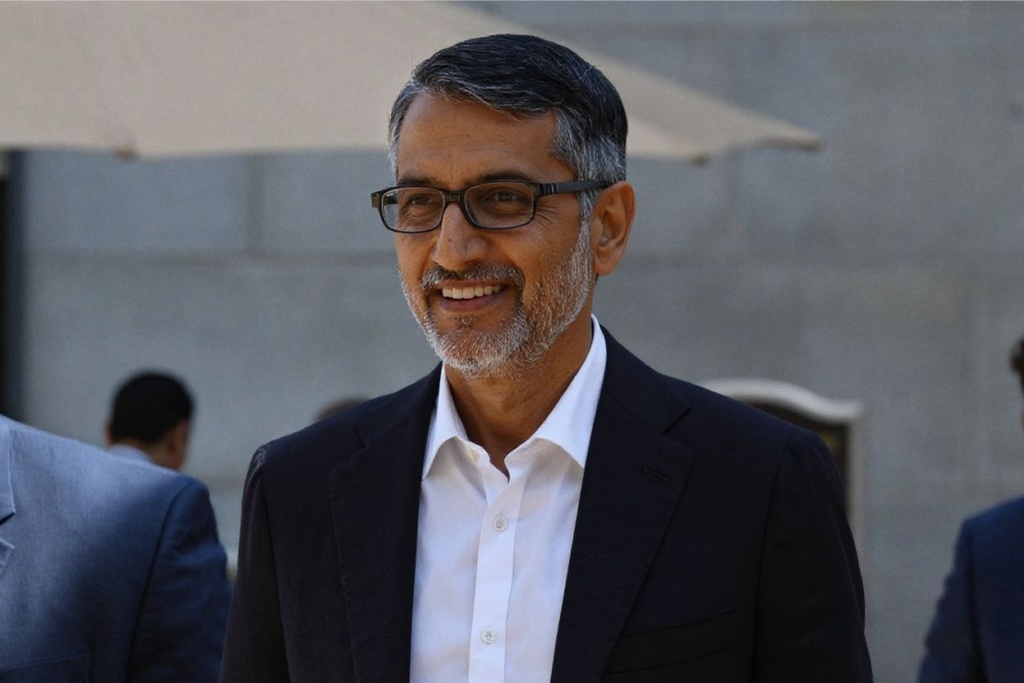 CEO of Alphabet (Google’s parent company) Sundar Pichai is a graduate of IIT Kharagpur.
CEO of Alphabet (Google’s parent company) Sundar Pichai is a graduate of IIT Kharagpur.
4. GATE Exam (Graduate Aptitude Test in Engineering)
The Graduate Aptitude Test in Engineering (GATE) is one of the most formidable exams in the world.
Geared towards engineering students aspiring to pursue a master’s degree in India, GATE is a gateway to esteemed institutions like IITs, IISc, and IIMs — the alma mater of some of the greatest engineers of our time, such as Alphabet CEO Sundar Pichai and Microsoft CEO Satya Nadella.
It’s also a key qualification for anyone seeking a job in India’s public service companies.
This computer-based, three-hour examination spans diverse subjects, including engineering, mathematics, science, and general aptitude.
Only an average of 16% to 18% emerge victorious.
5. CCIE (Cisco Certified Internetwork Expert)
The Cisco Certified Internetwork Expert (CCIE) is a marker of expertise for senior networking professionals, demonstrating their ability to design, build, implement, maintain, and troubleshoot complex enterprise networking infrastructures.
To earn this certificate, however, is to go through a rigorous two-stage examination process.
The first hurdle is a two-hour written exam, which, if conquered, paves the way to an even more daunting eight-hour lab exam covering configuration, troubleshooting and integration.
There are only around 55,000 certified individuals, a testament to the exclusive club of networking experts. Annually, about 8,000 candidates brave the CCIE lab exam, facing a challenging pass rate of 26%, according to Cisco.
Those who fail not only lose a crucial opportunity but also their exam fee, totalling around US$2,050, including US$450 for each attempt at the written exam and approximately US$1,600 for each attempt at the lab exam.

With a pass rate of less than 11% for all three levels, the CFA exam is one of the hardest exams in the world.
6. CFA (Chartered Financial Analyst)
Awarded by the CFA Institute, this professional designation aims to gauge the competence and integrity of financial analysts.
It’s usually taken by final year students in an undergraduate programme or those who have amassed 4,000 hours of professional work experience.
The journey to becoming a Chartered Financial Analyst involves passing three levels of exams that delve into areas such as accounting, economics, ethics, money management, and security analysis.
The Wall Street Journal has reported on how hard it is, finding that less than one-fifth of candidates manage to clear it on a yearly basis, even after multiple attempts.
As of August 2022, pass rates stand at 37% for the first level, 40% for the second, and 48% for the third.
7. IIT JEE Exam (Joint Entrance Exam – Indian Institute of Technology)
As an engineering entrance exam in India, the IIT JEE Exam is conducted by the National Testing Agency (NTA) to determine admission to undergraduate engineering programmes in prestigious Indian universities.
The exam, divided into two parts, each lasting three hours, evaluates physics, chemistry, and math skills while also scrutinising comprehensive reasoning and analytical abilities.
The sheer magnitude of the challenge is evident in the numbers: in 2022, 155,538 candidates faced both JEE (Advanced) papers, with only 40,712 managing to qualify.
With acceptance rates at IITs hovering around 1%, the IIT JEE Exam earns its position as one of the world’s most difficult exams.
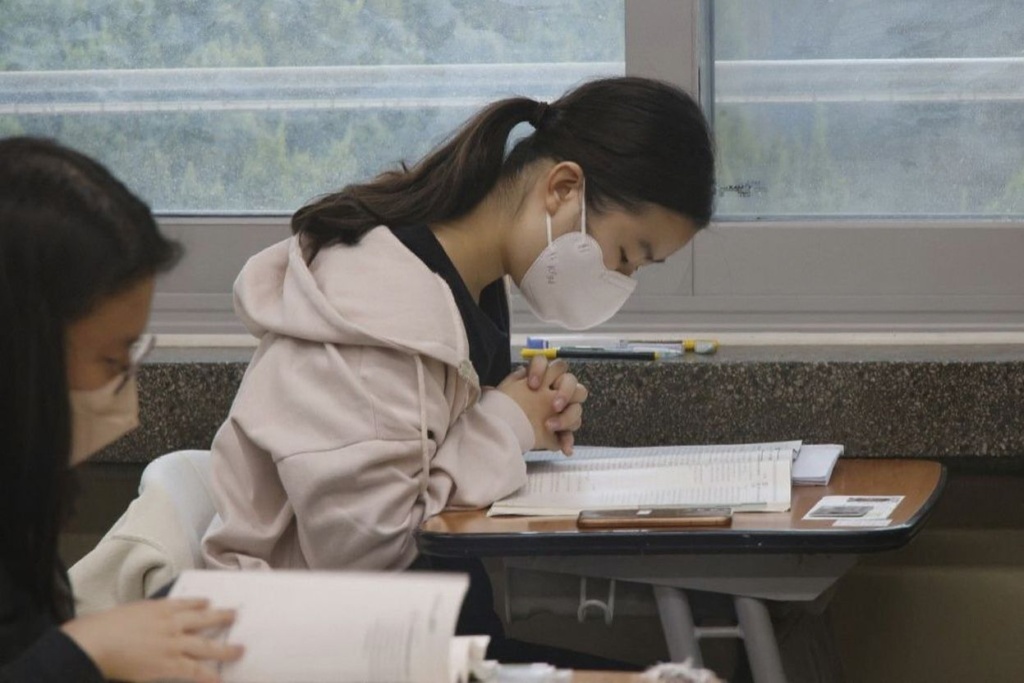 The hardest exams in the world have students praying hard to pass.
The hardest exams in the world have students praying hard to pass.
8. UPSC (Union Public Service Commission) in India
Conducted by the Indian government, the Union Public Service Commission (UPSC) exam aims to fill prestigious positions in departments such as the Indian Administrative Service (IAS), Indian Foreign Service (IFS), Indian Police Service (IPS), and various other Central Services and posts.
The examination process commences with prelims, featuring two general-topic objective papers, and progresses to the main examination, which consists of seven comprehensive papers.
Advancing to the second stage entails facing an interview panel that assesses your personality, awareness, and reasoning skills.
Despite how difficult it is, the UPSC exam garners around 67,000 monthly searches.
9. Mensa
To become part of this exclusive international organisation, you must report a score at the 98th percentile on an approved intelligence test that has been administered and supervised by a qualified examiner.
This means a score that is greater than or equal to that achieved by 98% of the general population taking the test.
The test assesses your IQ — which covers your reasoning, problem-solving, and logic skills.
Famous Mensa members include:
- Lisa Simpson on The Simpsons
- South Korean rapper Park Kyung
- Comedian Steve Martin
- Singer Shakira
- Director Quentin Tarantino
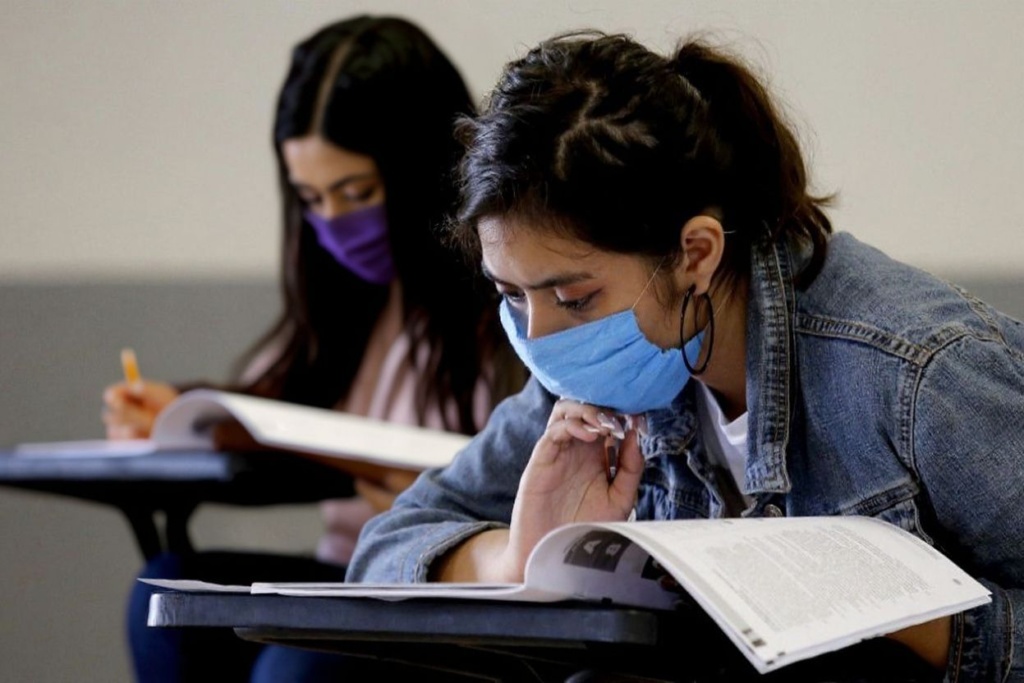 Though difficult, many students still choose to undertake the hardest exams in the world to gain recognition.
Though difficult, many students still choose to undertake the hardest exams in the world to gain recognition.
10. GRE (Graduate Record Examination)
When you pursue the Graduate Record Examination (GRE), you’re taking on one of the hardest exams in the world.
The GRE is owned and administered by the Educational Testing Service (ETS). This standardised test assesses the overall academic readiness of students and is crucial for graduate school admission in the US, Canada and other countries.
The GRE is computer-based, featuring six sections covering analytical writing, verbal reasoning, mathematical reasoning, and a research segment.
What sets the GRE apart are its intricate vocabulary and reading sections, demanding high-level reasoning skills from candidates.
The exam allows for multiple attempts, with candidates eligible to take the GRE once every 21 days, up to five times in a 12-month period.
The GRE test, essential for MS or MBA studies abroad, is renowned for its comprehensive evaluation of candidates’ academic preparedness.










